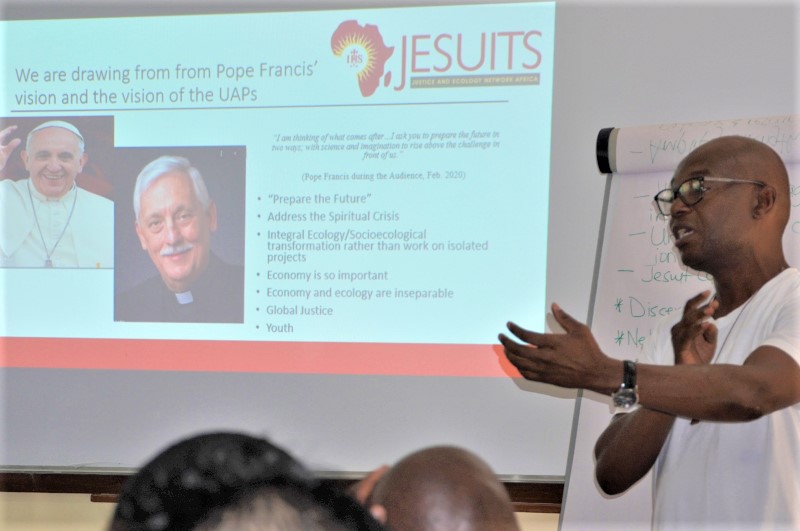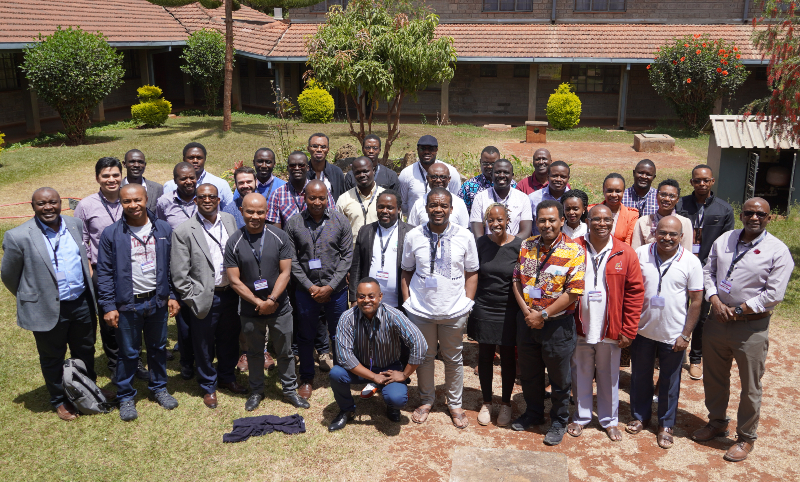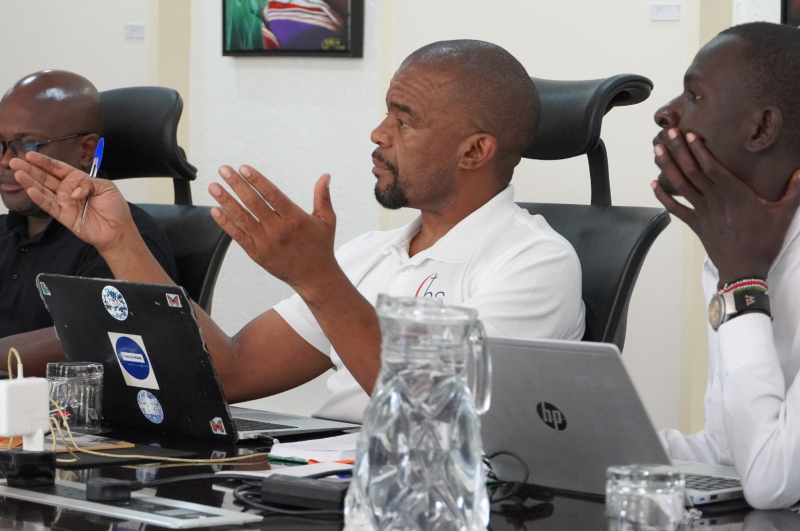



The Jesuit Justice and Ecology Network Africa (JENA) held its third Annual Assembly from 27-29, October 2022 at AOSK Chemi Chemi ya Uzima, Nairobi, Kenya.
The Assembly’s theme was “Prepare the future: Recovery, Removal, Renewal, and Resilience in a post-pandemic world”. This is an apt theme within the integral ecology framework, in the current times, when the world is still at the behest of a pandemic, and grappling with human-induced climatic disasters, conflicts, and wars.
Guided by the integral ecology model the participants sought to heighten their awareness of the state of the world asking themselves the questions: What do we see? What is the cry of Africa, the poor, and the Youth? Are we paying enough attention, are we listening deeply enough to respond to the mission of reconciliation and justice; the mission of the service of faith whose integrating principle is the inseparable link between faith and the promotion of a peaceful and just world?
Annual Assemblies are held by JENA to enhance networking, collaboration, and discernment in the social ministries of the Jesuit Conference of Africa and Madagascar (JCAM), to come up with concrete suggestions for collaborative actions, connect with the Jesuit networks globally, enhance the voice of Africa on social justice and climate change concerns on the global stage, develop strategies to operationalize ideas, capitalize on experiences and spaces for interconnection, amplify the strength of networking and resource mobilization, strengthen the voice of the afflicted our research and have conversation on how to engage the youth and other marginalized voices.
Using the integral ecology framework, which JENA has adopted as a framework of analysis and action, the Assembly provided its members and partners with tangible means to respond to the call and to foster dialogue among the partners. JENA will use the Integral Ecology framework as a guide for its interventions to shape the post-pandemic world as laid out in Fratelli Tutti, where Pope Francis calls for a reaffirmation of the principle of solidarity and human fraternity as a means of building resilience not only against future pandemics but against any future crisis.
The Assembly, therefore, sought to strengthen JENA’s response to support Arica’s post-COVID-19 recovery with a focus on the following areas of JENA’s programmatic interventions:
i. Sustainable, inclusive, and resilient recovery (Promoting education for all, health for all, social protection, and sufficient public finance for recovery)
ii. Integral ecosystem restoration and climate justice with a focus on climate finance to support adaptation and to repair loss and damage
iii. Rethinking African development with a focus on reforming business and economy, mining, SMEs development, etc)
iv. Governance and Human Rights.
In attendance were delegates from Jesuit organisations namely: Jesuit Justice and Ecology Network (JENA), Jesuit Hakimani Center (JHC), Jesuit Centre for Safeguarding in Africa (JCSA), African Jesuits AIDS Network (AJAN), Jesuit Refugee Service (JRS), Silveria House from Zimbabwe, Jesuit Centre for Theological Reflection (JCTR), Kasisi Agricultural Training Center from Zambia, Centre Social Arrupe (CSA) from Madagascar, Arrupe Jesuit Institute from Ghana, and Nigeria, Research Center for Social Action (CEPAS) from DRC, and Center for Studies and Training for Development (CEFOD) in Chad. Also, the following partner organisations were present: Laudato Si' movement, International Centre for Reproductive Health-Kenya (ICRH), Footprints For Change in Kenya, and the Laudato Si Research Institute from the UK.
This forum was also graced by JCAM’s leadership, led by the JCAM President Fr. Agbonkhianmeghe E. Orobator, SJ, and his Socius Fr. John the Baptist Anyeh-Zamcho, SJ. The coordinator of the Social Justice and Ecology Secretariat (SJES) of the Jesuit Curia in Rome, Fr. Xavier Jeyaraj, SJ was also in attendance.
Select Payment Method
Pay by bank transfer
If you wish to make a donation by direct bank transfer please contact Fr Paul Hamill SJ treasurer@jesuits.africa. Fr Paul will get in touch with you about the best method of transfer for you and share account details with you. Donations can be one-off gifts or of any frequency; for example, you might wish to become a regular monthly donor of small amounts; that sort of reliable income can allow for very welcome forward planning in the development of the Society’s works in Africa and Madagascar.
Often it is easier to send a donation to an office within your own country and Fr Paul can advise on how that might be done. In some countries this kind of giving can also be recognised for tax relief and the necessary receipts will be issued.


